A year of reading – Reviewing 2024. Books as companions
When I was younger I had a blog in which I posted pictures of the books I read with small reviews or thoughts, like a journal. The point wasn’t so much to review the books, but to remember my life and them together, intersecting, whether I was at home in bed, traveling or drinking coffee (most pictures contained a cup of something, indeed). At some point in university I almost stopped reading literature because I had to read so much academic stuff, so that project slowly disappeared. But after leaving academia, I came back to books more strongly. I know if too many days pass in which I don’t read, I get frustrated. I’ve been wanting to write some sort of year review of 2024 for almost a month and I barely found the time, between work and housework and getting sick. So it’s not lost on me what a privilege it is to have the time to reflect on what you’ve read and to have the time to read. The world is burning, some of it literally, and what can any of these scribbles mean? I don’t want to repeat all the ways in which books can be tools of freedom, because in so many other ways, they can be, and are, tools of repression. The point is they’re here – stories, knowledges, voices. Which one of them sways us which way?
In 2024 I’ve wanted to read more books from around the world, and I failed. I read a lot instead (more than a 100 is a lot for me), and a lot of good science-fiction. So this list is at times too long because I can’t pick one story, and other times the categories I made up make only half sense, but regardless, I hope you find something in it that calls to you. I wrote it because I wanted to thank each book for what it has given me.
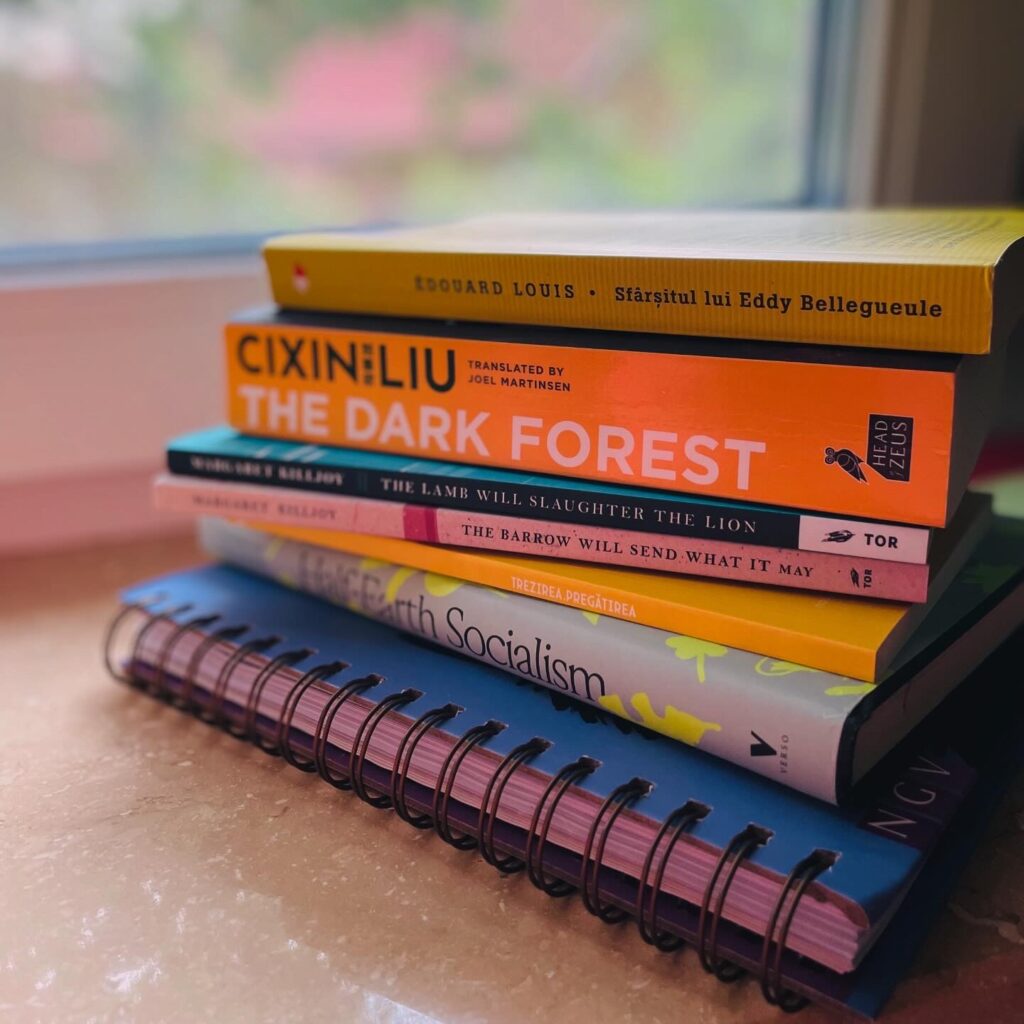
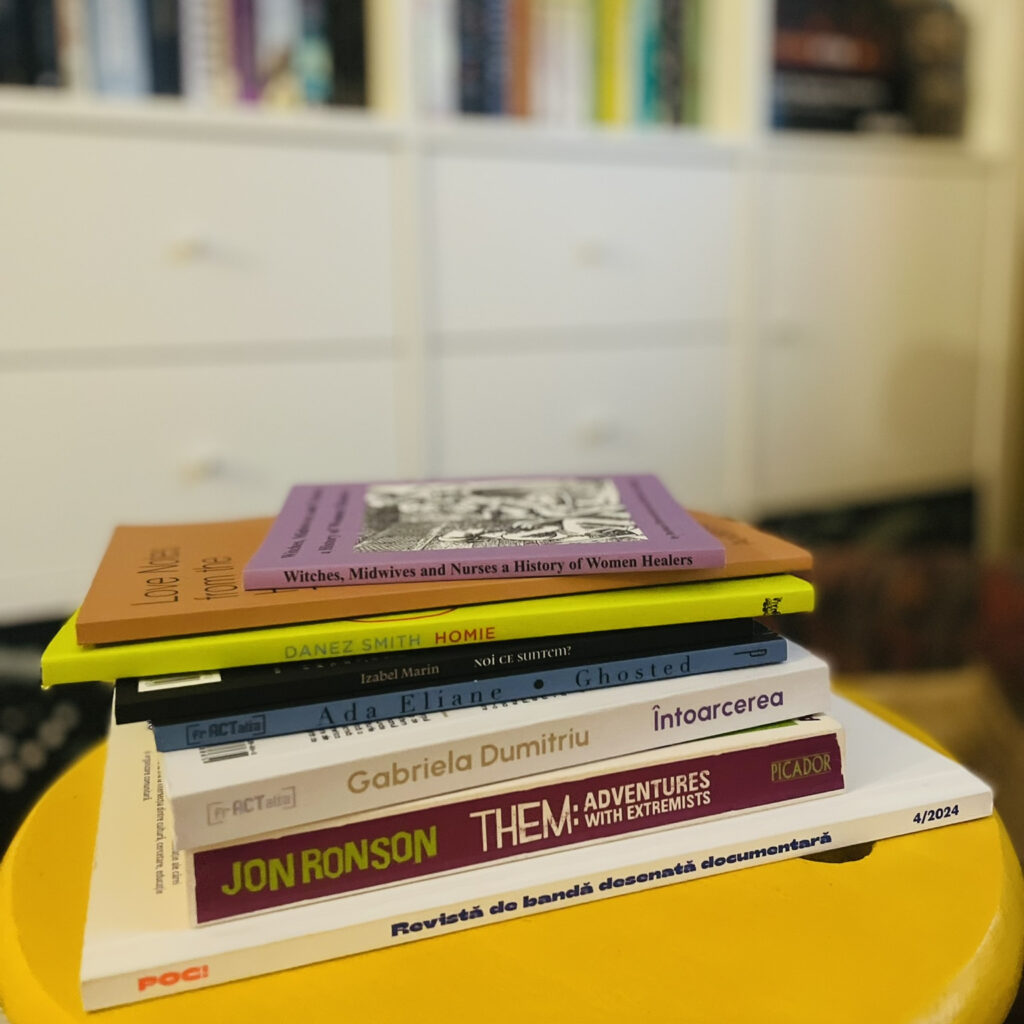
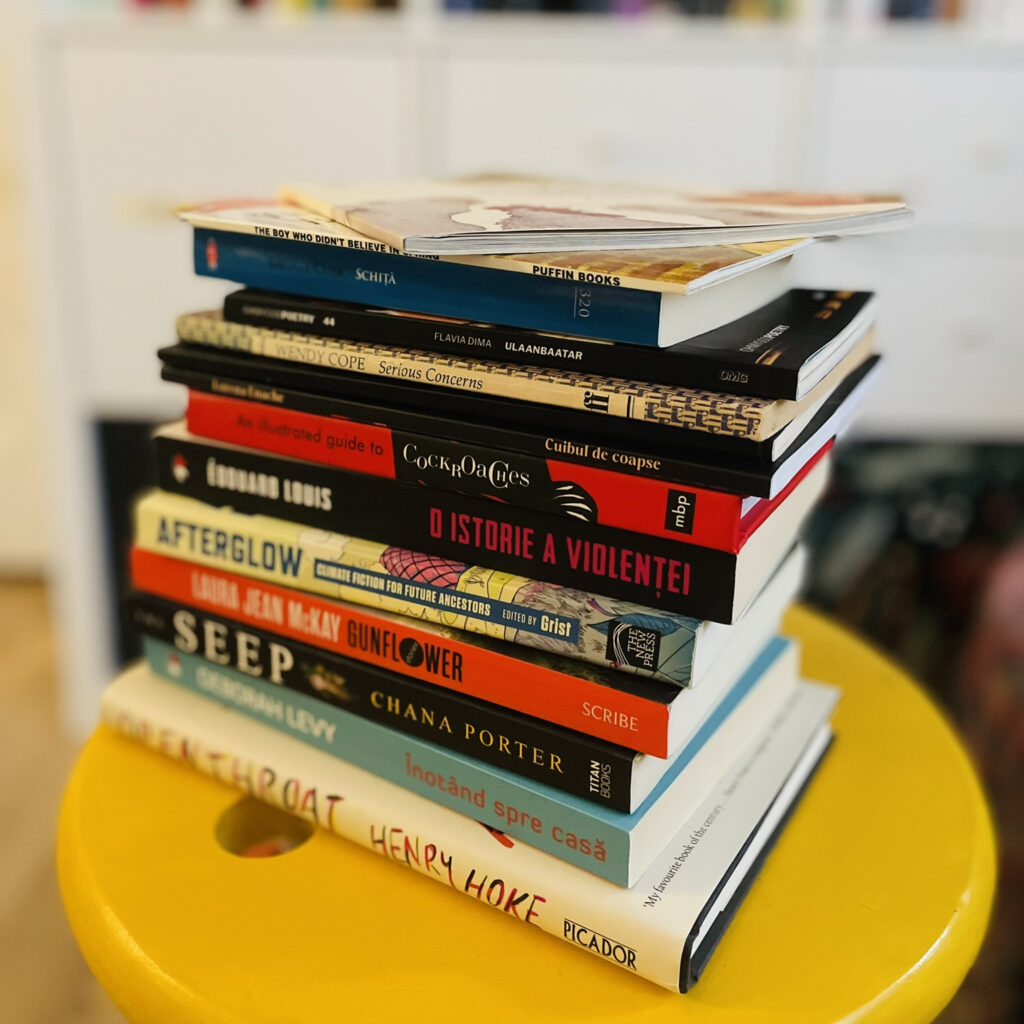
Stories for when you want to get lost somewhere else
Piranesi – Susanna Clarke. Piranesi is alone in the House, the whole World. He takes care of the bones of the dead, he is kind to the birds and feeds on the fish, and he is good to the only other human there is: called fittingly, the Other. Even when the Other is not so good to him.
This is how we lose the time war – Amal El-Mohtar & Max Gladstone. This book is a small gem of beautiful writing in which the action is less important than the piercing and putting of love in word shaped format, however that might be served, in paper or seed.
The three-body problem (The Whole Trilogy) – Liu Cixin. I can’t begin (or ever end) to list all the things that imploded my mind within this trilogy, suffice it to say the world-building is, well, at an unprecedented scale. It crosses through time, space, and all of your neurons.
Yoke of stars – R. B. Lemberg. Ulín visits Stone Orphan and, in the quest to learn their language, chooses to exchange her own stories. It is a fascinatingly magical meditation on gender, revenge and at times, (dis)ability. A great read for language geeks and queers!
Kissing the Witch – Emma Donoghue. Queer-feminist reimaginings of classic fairy tales. Donoghue’s writing is sharp and clear, she spins these fairytales masterfully and even when they become predictable, they are still enjoyable.
The Lamb Will Slaughter the Lion / The Barrow Will Send What it May – Margaret Killjoy. The two (current) novellas in the Danielle Cain series. There’s a lot of squatting, blood, magic, queer crushes, some panic attacks and tons of action going on in them, making it easy to get lost & come back smiling.
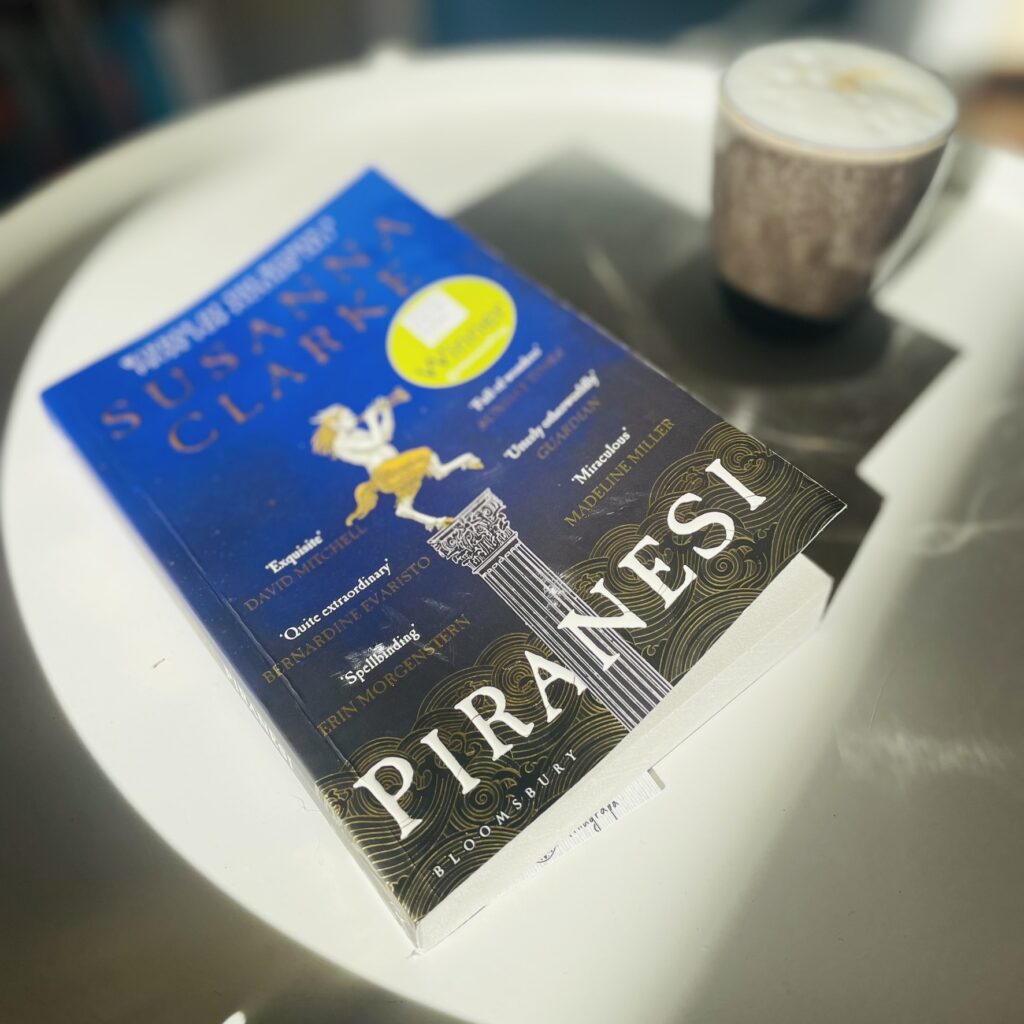
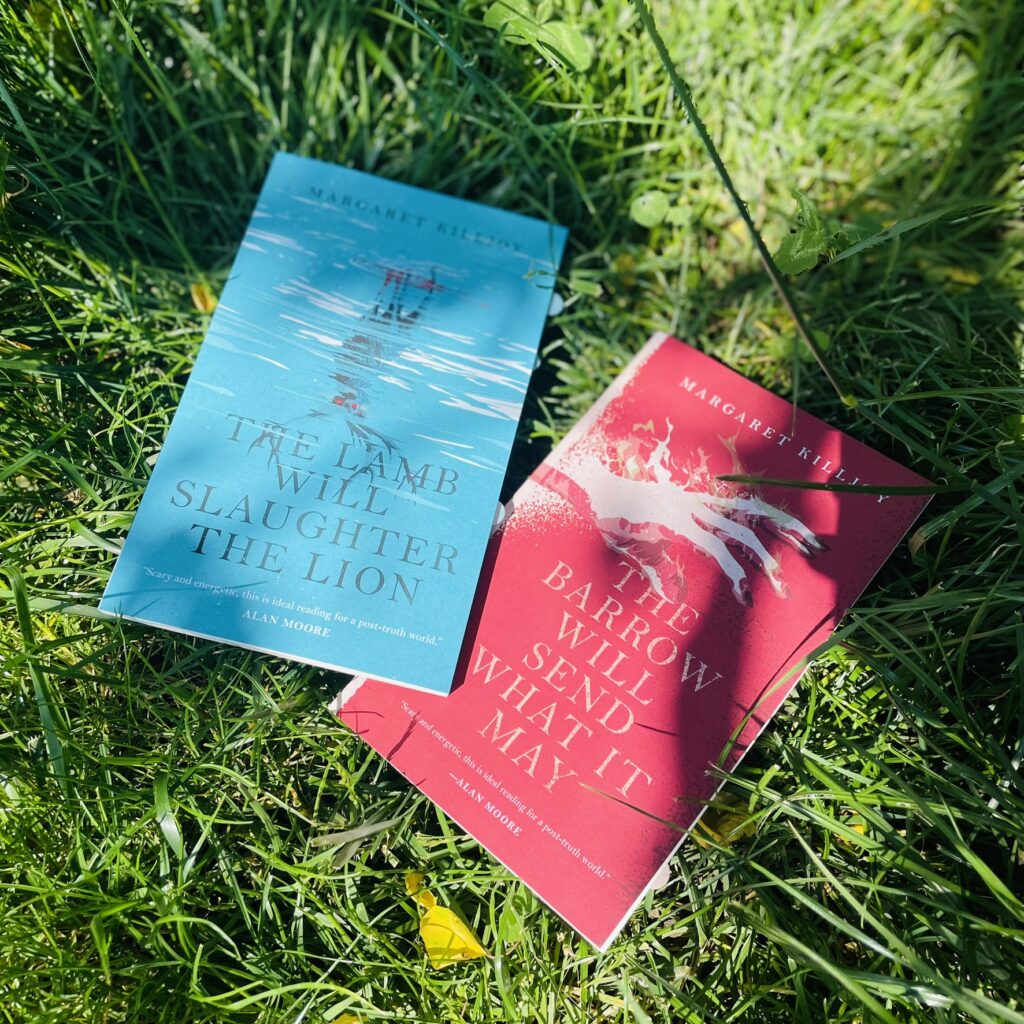
Stories to nurture your wish for liberation
Mornings in Jenin – Susan Abulhawa. This is a book of endless tears, but its beauty will pierce right through you. Family and political struggles intersect, love wrestles to be born in the refugee camps and moments of poetry and warmth are deeply cherished, as the violence of occupation permeates every nook of the Palestinians’ lives.
The word for world is forest – Ursula K. Le Guin. The book is an unfolding of colonialism’s violences upon a planet of peaceful people, people who never warred between one another. With the destruction of their forest comes violence, slavery, death. Captain Davidson’s perspective shows us the depth of a patriarchal, white supremacist mode of thinking, while Selver is the indigenous man who is changed – and later changes the whole world, like a God does – by Davidson’s horrendous crimes.
Blackfish City – Sam J Miller. How will life be after societal breakdown, after the climate wars? Visit a city of extreme poverty and extreme riches – I wrote more about it here.
The Deep – Rivers Solomon. It all starts with Yetu, the historian, tasked with remembering all her people’s experiences, since the very moment they started breathing underwater. This novella moves one to look again at the past with the strange eyes, “strange fish” eyes, to never forget the trauma of History – I wrote more about it here.
The Practice, the Horizon and The Chain – Sofia Samatar. The story of a chained boy taken up into the Ship, getting a scholarship for his artistic talent. This novella is a piercing account on the hypocrisy of higher education and its scholars amidst complete and ravaging inequality.
We won’t be here tomorrow – Margaret Killjoy. It’s full of punks, outlaws, queers, anarchists and squatters, telling the stories of those at the fringes of society, with a touch of zombies, demons and the devil. I loved it and it made me an instant Killjoy fan.
Afterglow: Climate Fiction For Future Ancestors – ed. Grist. They don’t call it that title for nothing. These stories tell of multiple ways of looking at climate “solutions”, of engaging speculative fiction as fuel for our struggles and of the impacts climate disasters might pose to diverse communities – as well as how they might respond.
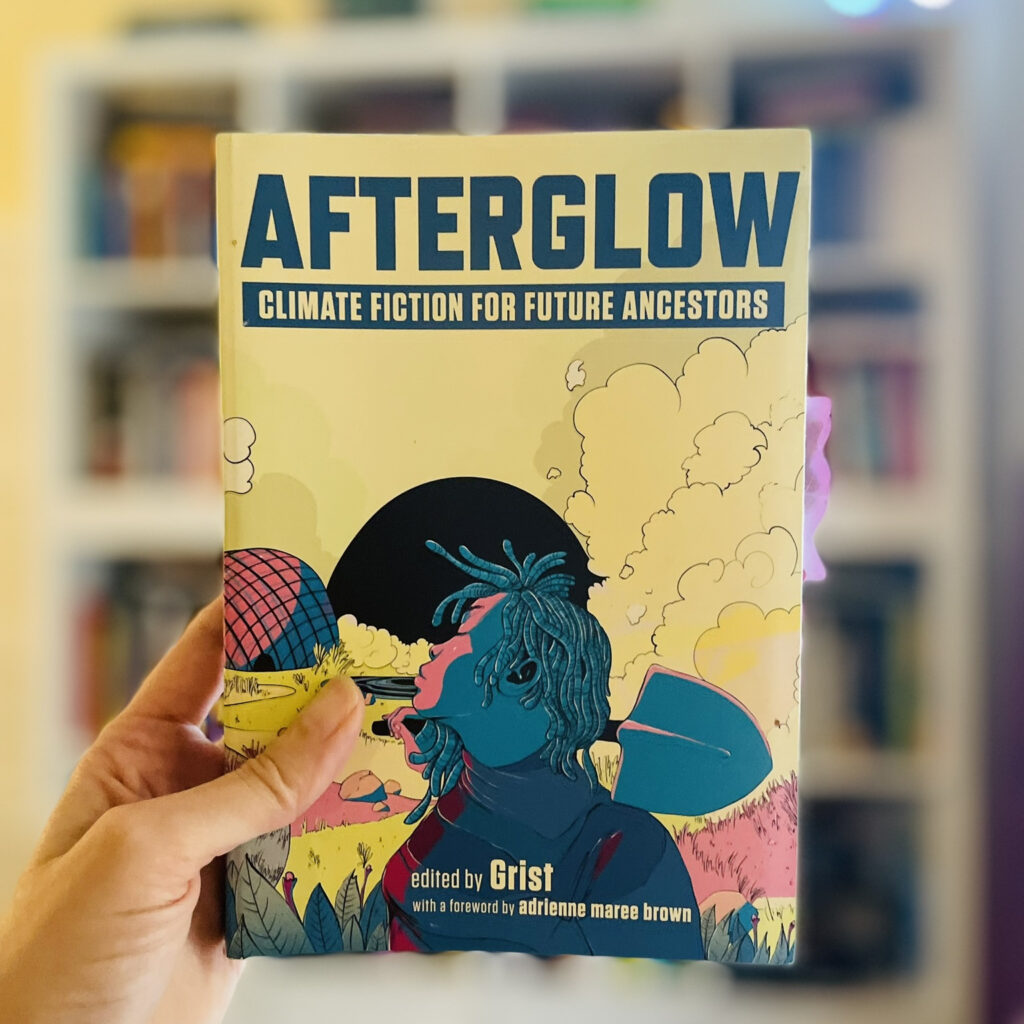
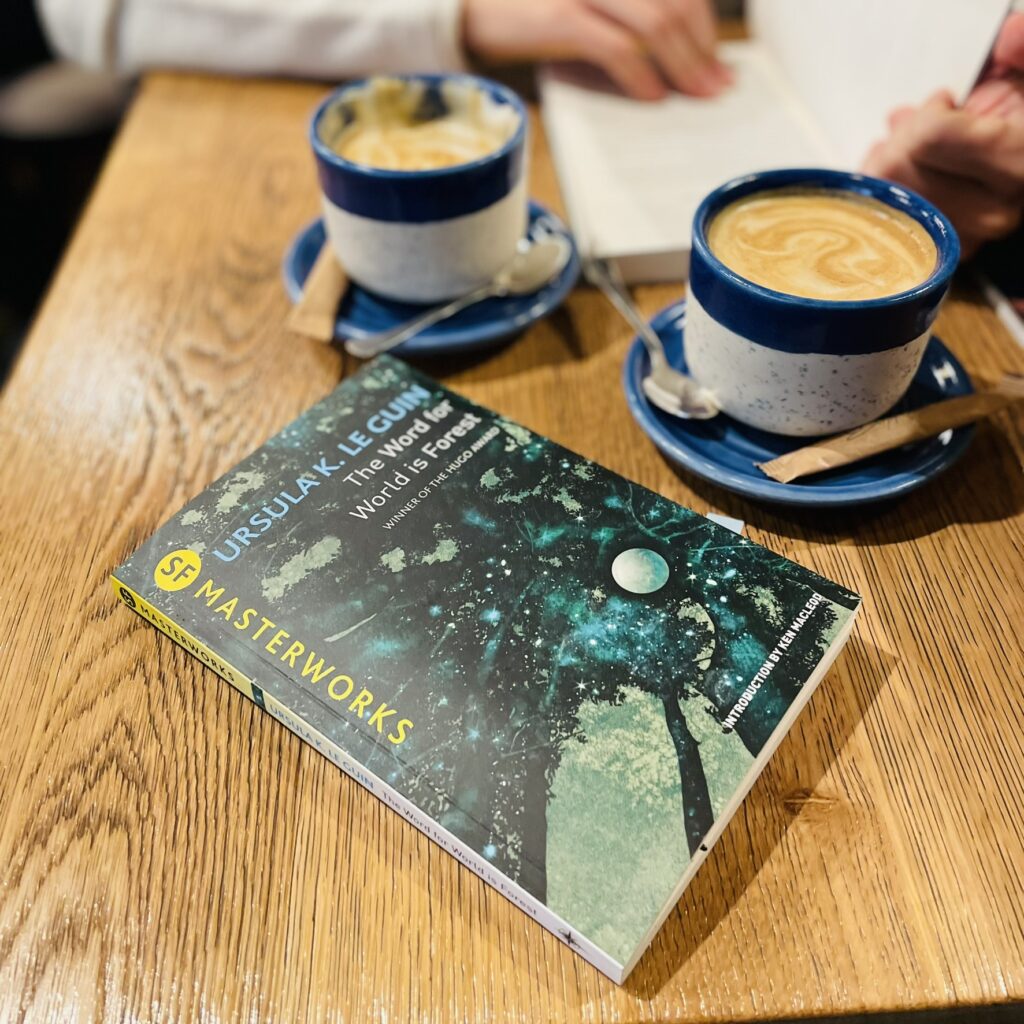
Books that punch with strokes of harsh reality
Red Milk – Sjón. It tells the story of Gunnar Kampen, a young Icelandic boy who, growing up after the Second World War, draws closer and closer to neo-Nazi ideology. It’s so eerie and frightening how closely the discourse of the party founded by the neo-Nazi character Gunnar resembles the rhetoric we hear now.
The End of Eddy Bellegueule – Edouard Louis. A novel with such a force of inner probing of class and gender frictions, as you rarely find. It draws you into the world of the marginalized, of those who all too rarely get to write about their own experiences. A painful, gay, working class coming-of-age.
Funniest non-fiction book that is also quite absurd and super-geeky
Sex Lives of Superheroes – Diana Mccallum. It’s a smart mix of biology and imagination that verges on laughing out loud most of the time. Outrageously imaginative questions about superheros’ sex lives, which is, of course, exactly what you need to know.
Books on reading that are like… wow, yeah
How to Read Now – Elaine Costillo. Castillo deals with serious issues such as racism and colonialism but there are also: jokes! The collection of essays is very smart, funny and easy to read.
Authority – Andrea Long Chu. The author deftly analyzes TV shows, politics or books with sharpness and style, blowing a resolution at the end that is about what she was talking about, but also, not really…? Reading her is always a treat.
Poetry that makes you rip your heart out
Rifqa – Mohammed El-Kurd. Its poems are silent screams, for even anger “is a luxury” for a people pictured as a threat, that ‘must be humanized’ (as if they are not already human). Rifqa is El-Kurd’s grandmother, and the most powerful poems of the collection reference her in some way.
Dear God. Dear Bones. Dear Yellow. – Noor Hindi. It is powerful, superbly formed, disruptive of anti-arab narratives, diagnosing the reporting, journalistic eye and critical of America and its immigration policy, of what is requested of women, of migrants, of Arabs. I wrote more on it here.
[…] – Fady Joudah. A work that pounds upon silence and language to enter love and anticolonial freedom. It’s divided in five sections, each of them dealing, roughly, with the subjects of Palestine, spirituality, love, and Palestine once more, with the fifth composed of just one poem, Sunbird, calling for ways to “be / from the river / to the sea”.
content warning: everything – Awkaeke Emezi. With their incredible intensity, Awkaeke Emezi’ fire burns through this collection that feels like a branded sign on the skin, a mark of suffering and beauty.
Homie – Danez Smith. Such force in this ode to friendship, to queer Black life, to its troubles and joys – from the (real) title to the very last page.
Quiet – Victoria Adukwei Bulley. It’s a book brimming with a hidden, dark power, a soft but constant resistance to what “empire” and colonialism mean. Whether she deals with lost things, history, young Black girls and boys, British politics, police violence, women’s freedoms, ancestors or child-bearing, she does so masterfully.
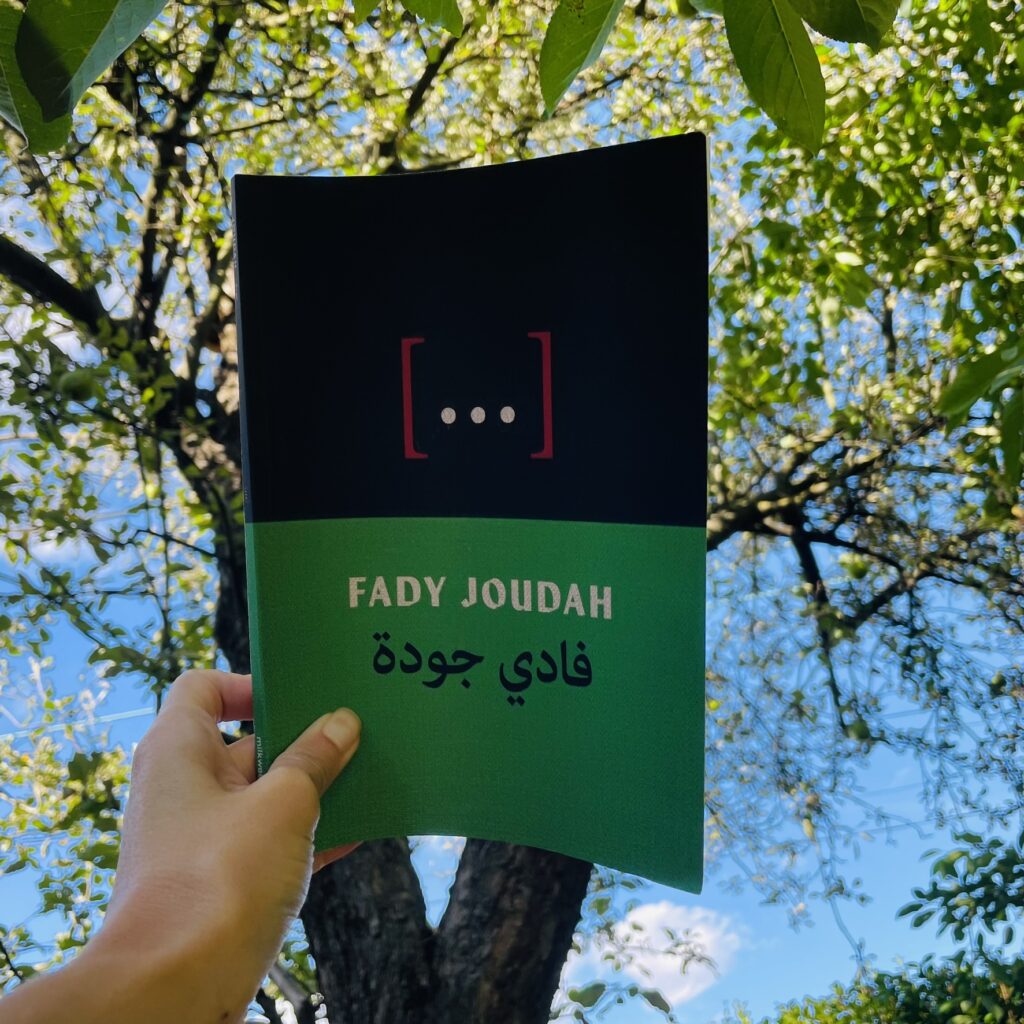
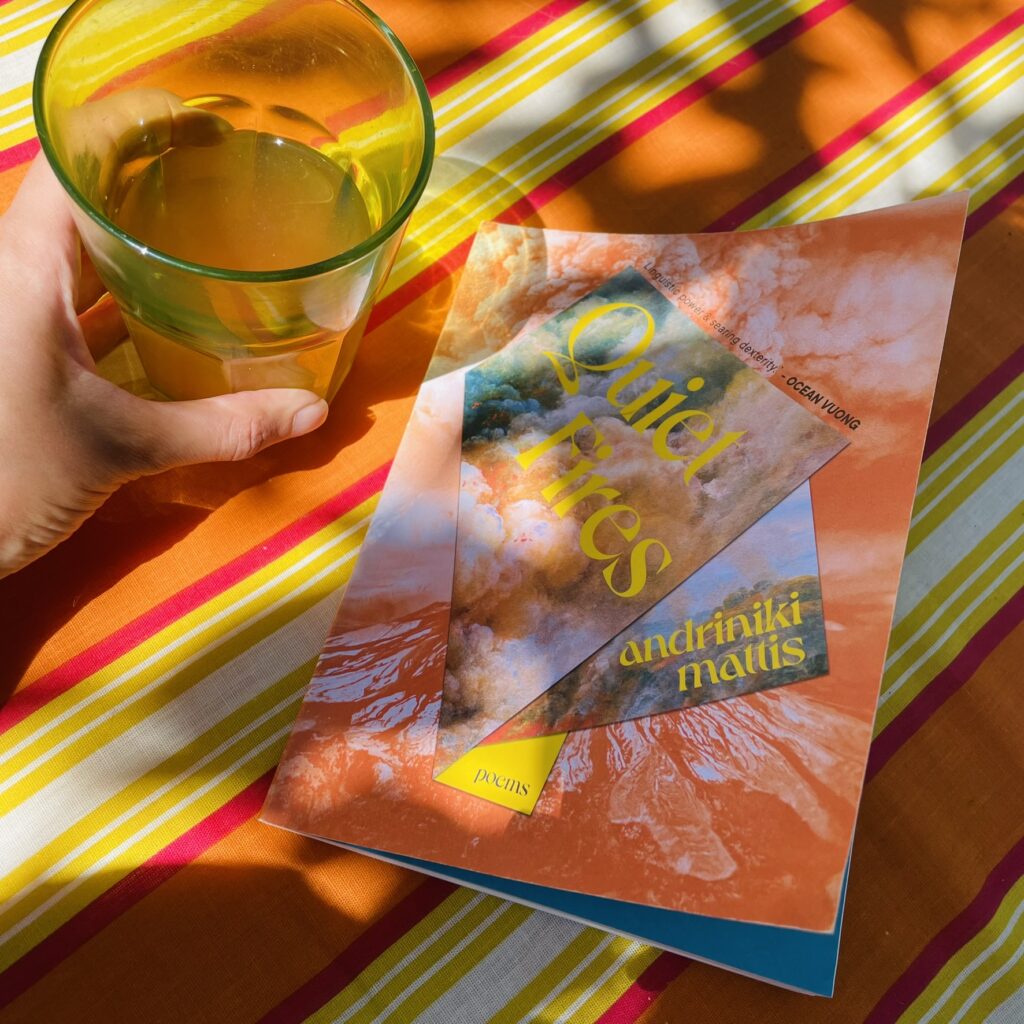
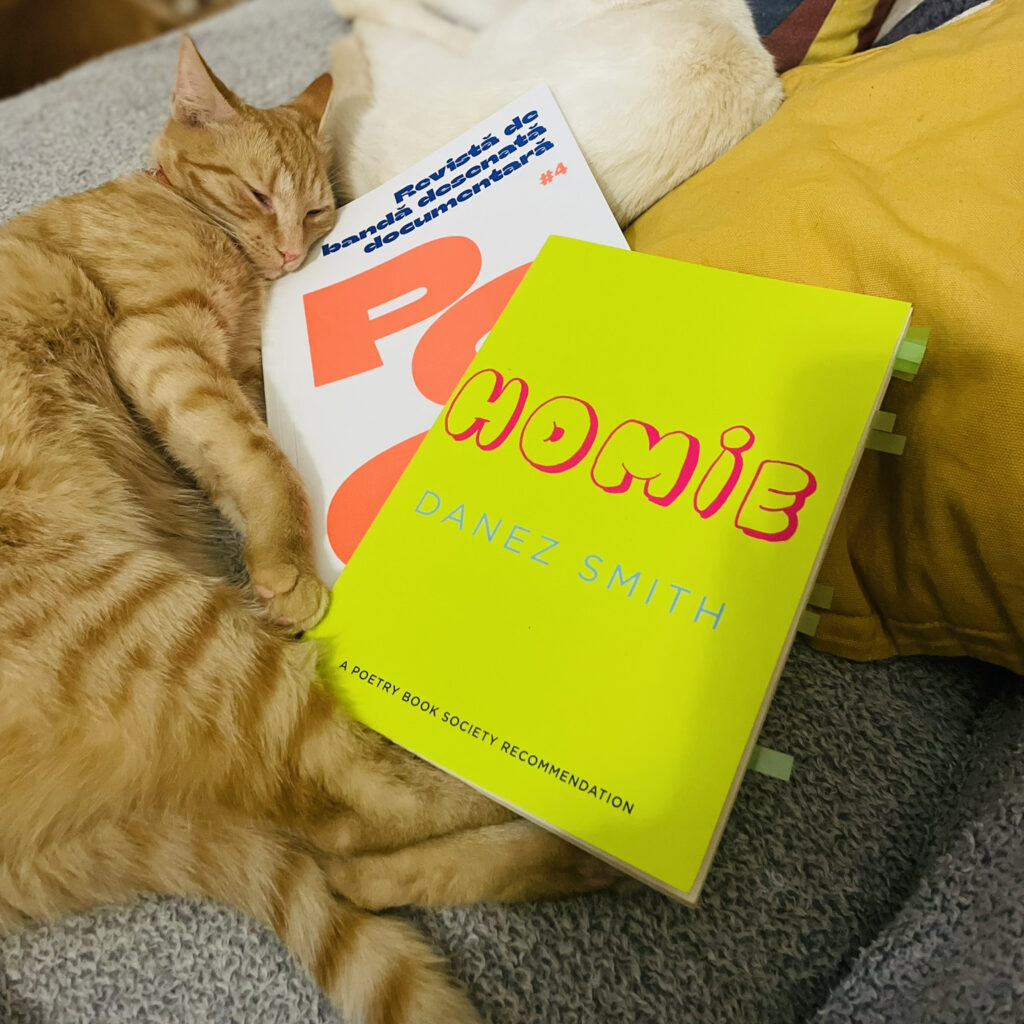
Poetry to warm you up and shake you a little
Quiet Fires – andriniki mattis. It’s a joy to witness the love, the anger, the dashes of sky and streaks of light coming out of it. It’s got plenty of landscapes from driving cars, gender feels, black bodies surviving and resisting, and queer summers smashing into the apocalyptic present.
Serious Concerns – Wendy Cope. Commenting on men, writing and writers, publishers, family, holidays and the weather, you’re getting a taste of the England rainy breeze and the ironic bite of a woman. A good book to have at hand, open once in a while, have a laugh & read out loud with friends, too!
Love Notes From The Hollow Tree – Jarod K. Anderson. Dealing with existential questions of life and death, depression and anxiety, the poet looks deep back into nature to cradle them as human questions want to be cradled: within moss, within the waters of a running river, within the Earth’s stone.
Poetry for when nature isn’t something out there
Nature Poem – Tommy Pico. It’s like a charming, funny, super-long series of text messages from a friend who is kinda rambling, angry and intense at times, but never boring. The kind of nature you find here is queer, subversive, urban, tapping away at the nature/culture divide one typed letter at the time.
A blueprint for survival – Kim Trainor. Like a carrier bag, this poetry volume containing emails, recipes, dialogues and philosophy, news pieces, journals in the footnotes noting date and carbon parts per million (rising), the experience of covid-19 lockdowns, declarations from climate activists, indigenous leaders & extinction rebellion, graphics and pictures of seeds, screenshots and sketches. The volume mixes lyricism with the harsh language of news and direct, specific vocabulary of science, intermingling descriptions of hiking in nature with philosophical dialogues about the value of non-human lives or the ways in which activist organizing develops
Poetry collections that are just too good
The Heartbeat of the Universe: Poems from Asimov’s Science Fiction and Analog Science Fiction and Fact 2012–2022 – ed. Emily Hockaday. A collection of poems like a dazzling night sky! Rarely have I encountered a collection in which I enjoy almost each and every poem, reading some of them twice immediately, then another three or four times.
Nepantla. An anthology of queer poets of color – ed. Christopher Soto. The selection is fantastic and each poem brings something of its own of the force, energy, humor and eroticism of American queer poets of color. Unmissable!
The Universe in Verse: 15 Portals to Wonder through Science & Poetry – ed. Maria Popova. A superb collection of poems and essays that meditate on the endless awe within this universe.
We the Gathered Heat: Asian American and Pacific Islander Poetry, Performance, and Spoken Word – Franny Choi, Bao Phi, Noʻu Revilla, and Terisa Siagatonu. I was absolutely mesmerized by this book and wanted to give each poem its deserved time and respect, so I read it very slowly. Which is also why I couldn’t finish it in time (it was an E-ARC). However, I read about half and I really loved it!
Graphic novels that I’d go back to
In – Will McPhail. The graphic novel follows the socially awkward illustrator, now an adult, as he tries to connect to his neighbour, to strangers or to his own mother. I found it vibrant and moving from the very beginning to the end.
Bad dreams in the night – Adam Ellis. I really love Ellis’ combination of horror and humor, which works perfectly for me, as I’m not much of a horror fan. I adore how many of the stories start from something simple, mundane, delving into something terribly creepy, but also kind of funny at times. I also enjoyed reading the note about each story at the end – of how it was conceived or where the idea came from.
Blue Sky Through the Window of a Moving Car: Comics for Beautiful, Awful and Ordinary Days – Jordan Bolton. Such a candid collection of comics! I wish I could read one every time I feel down. Bolton knows how to look at the mundane of the world with warmth and a beautiful sense of narrative in the every-day.
Sunday – Olivier Schrauwen. Absolutely hilarious! An exploration of a mundane Sunday in the life of just one – sorta random – person? Oh well, this is done in great style. Amazing how deeply intrusively one can go through another’s thoughts.
Leap – Simina Popescu. The soft pinks are a perfect choice for this book about queer awakenings in a dance school, and the entry of color in the large, full-page panels works beautifully. Ana and Sara’s friendship, which is central to the book, develops along their crushes and relationships, and through hurdles and lashing out, they’re still always there for each other. A lovable read, for sure!
Theory that could heal the future
Half-Earth Socialism – Troy Vettese & Drew Pendergrass. A very ambitious book which, of course, ought to have missing parts simply because of its scope, “Half-Earth Socialism” aims to go for solutions to the climate crisis that aren’t partial or insufficient, but which promise everything – everything possible, that is. I really enjoyed that they tried to ‘keep it real’ by refusing the luxury accelerationist ideals and underlining that some cuts must be made: notably, feeding the world on a plant-based (vegan) diet, diminishing energy consumption (for the rich, while upping it for the poor) and planetary rewilding. If you can’t find the time to read it, do play the online game they co-created!
Imperfect Solidarities – Aruna D’Souza. D’Souza argues against empathy as a political tool, because „it depends on the ability to translate the experience of another into one’s own language” (p.27). Instead, she argues for the power of mistranslation, for staying together despite misunderstandings, for seeing and fighting for common interests without trying to capture the other into our language completely. I find this book to be great to think-with and I really recommend it to anyone interested in the concepts of empathy and solidarity.
How to blow up a pipeline – Andreas Malm. Malm’s writing is charming and potent and his argument is to be taken seriously. It’s also arrogant and it’s definitely something that can start a conversation. Indeed, it has. I read it when researching for this video-essay and, even though it didn’t get to become central to it, it certainly lodged in my mind.
Expanding the Critical Animal Studies Imagination. Essays in Solidarity and Total Liberation – ed. Nathan Poirier, Sarah Tomasello, and Amber E. George. Aiming to make new connections to movements and ideas underexplored within CAS, the collection contains twelve chapters on issues such as trans liberation, human population discourse, Black liberation, mutual aid, in-vitro meat, multispecies coexistence, abundance and scarcity. It occupies an important place within CAS scholarship and can be of aid to activists as well, many of the essays being directly relevant to non-academic settings and accessible to read. My full review in Italian here.
Animali Si Diventa. Femminismi E Liberazione Animale – Federica Timeto. Published this spring in Italian, it navigates critical theories smoothly to present a short yet comprehensive account of the interlockings between the social movements for women and those for animals. Read an interview in English about it here.
The following are upcoming in 2025
Multispecies Assemblies – Eva Meijer. Meijer proposes an idea that keeps emerging in the latest writings since the political turn in animal studies: how do we act politically and make choices with other animals? Meijer proposes the „assembly” as an option for political action, rather than voting or representing others (in most cases). The book is rather short and more like a recipe for one to try, than a prescriptive or largely theoretical exploration. It is, however, a successful invitation: try it.
Multispecies Dialogues with Animals, Children, The Sea and Others – Eva Meijer. Reading this book is like taking a walk by the sea, feet in sand, listening to the waves. It’s a profound exercise in paying attention and I am grateful to be able to witness it. Meijer stretches the meaning of what dialogue can be by exploring, in each chapter, dialogues with Others – beings othered by the figure of the white adult human. Read it and non-human voices will start to resound in your ears much louder than before. An online launch will take place on February 12th, 7 pm CET here. The book will be open-access so don’t miss it!
Literature in Romanian (yet untranslated but hopefully one day)
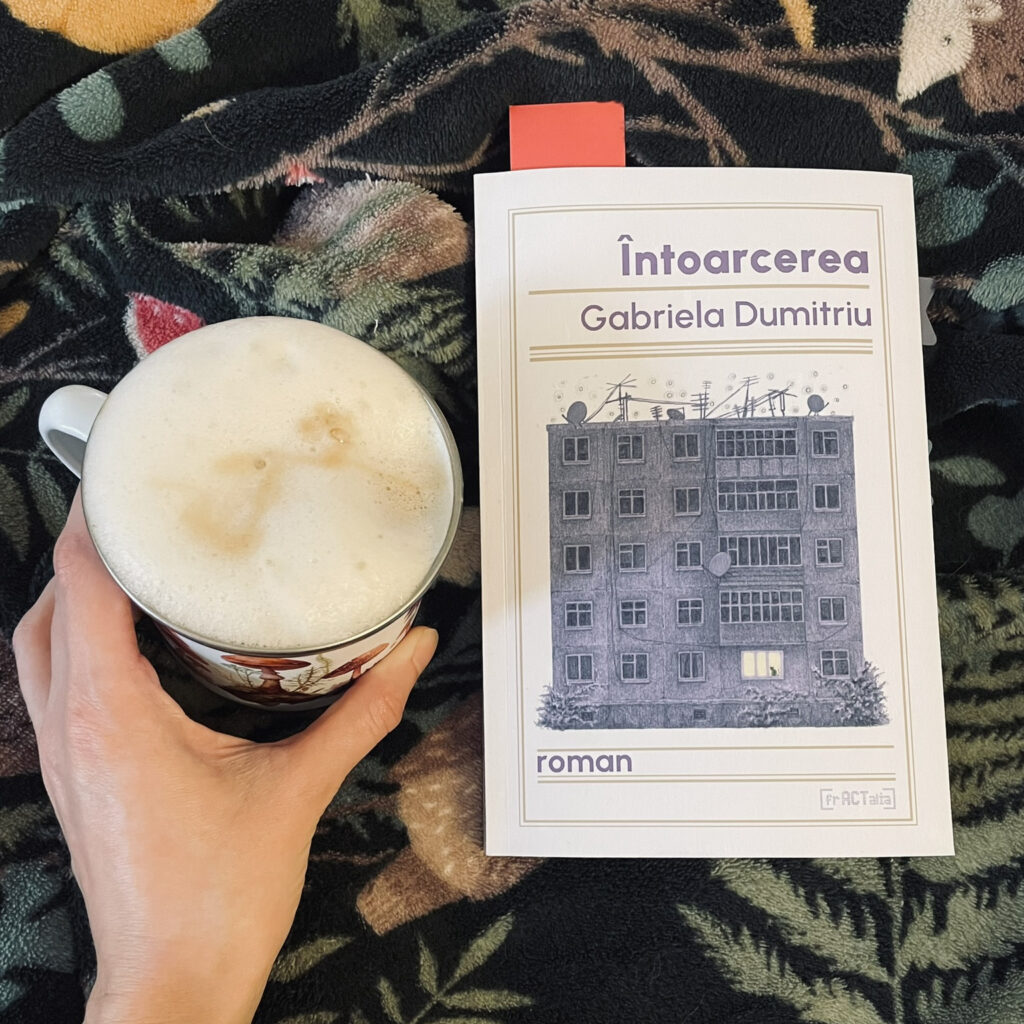
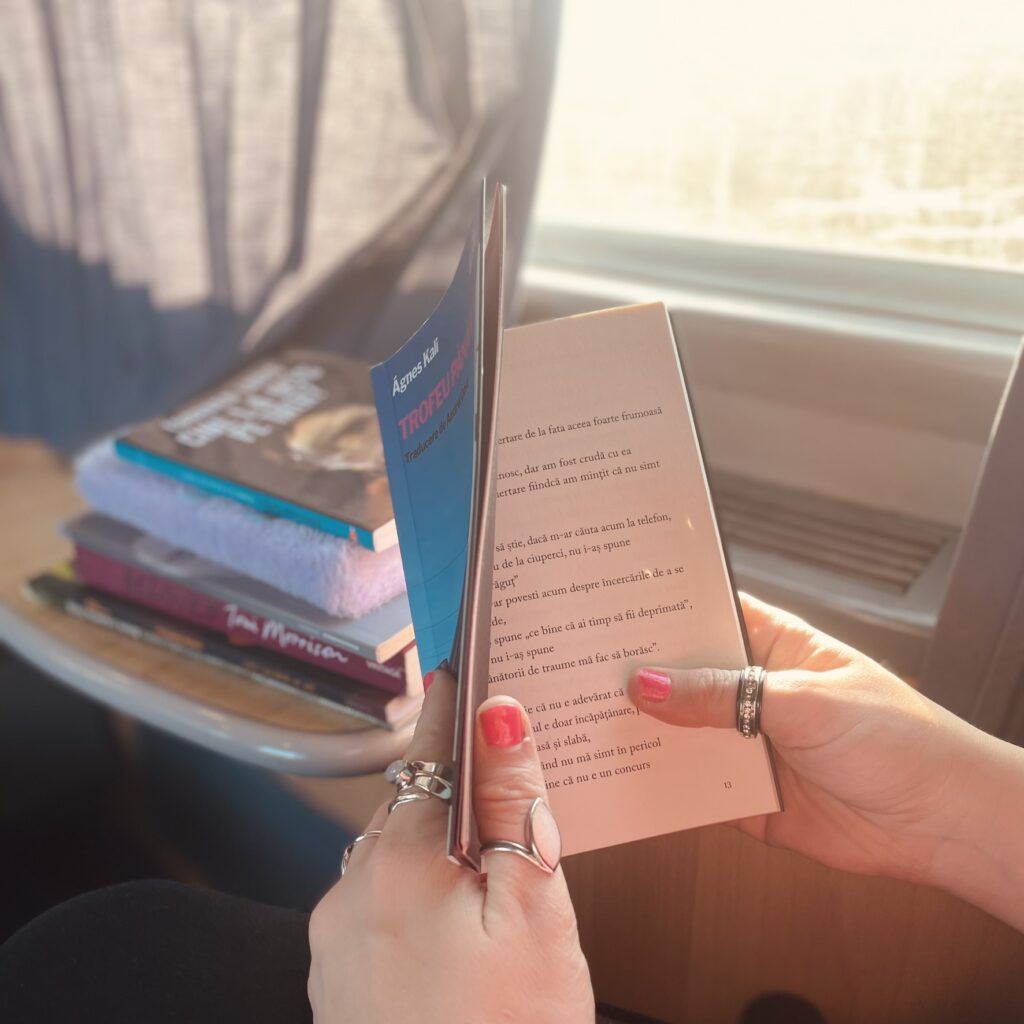
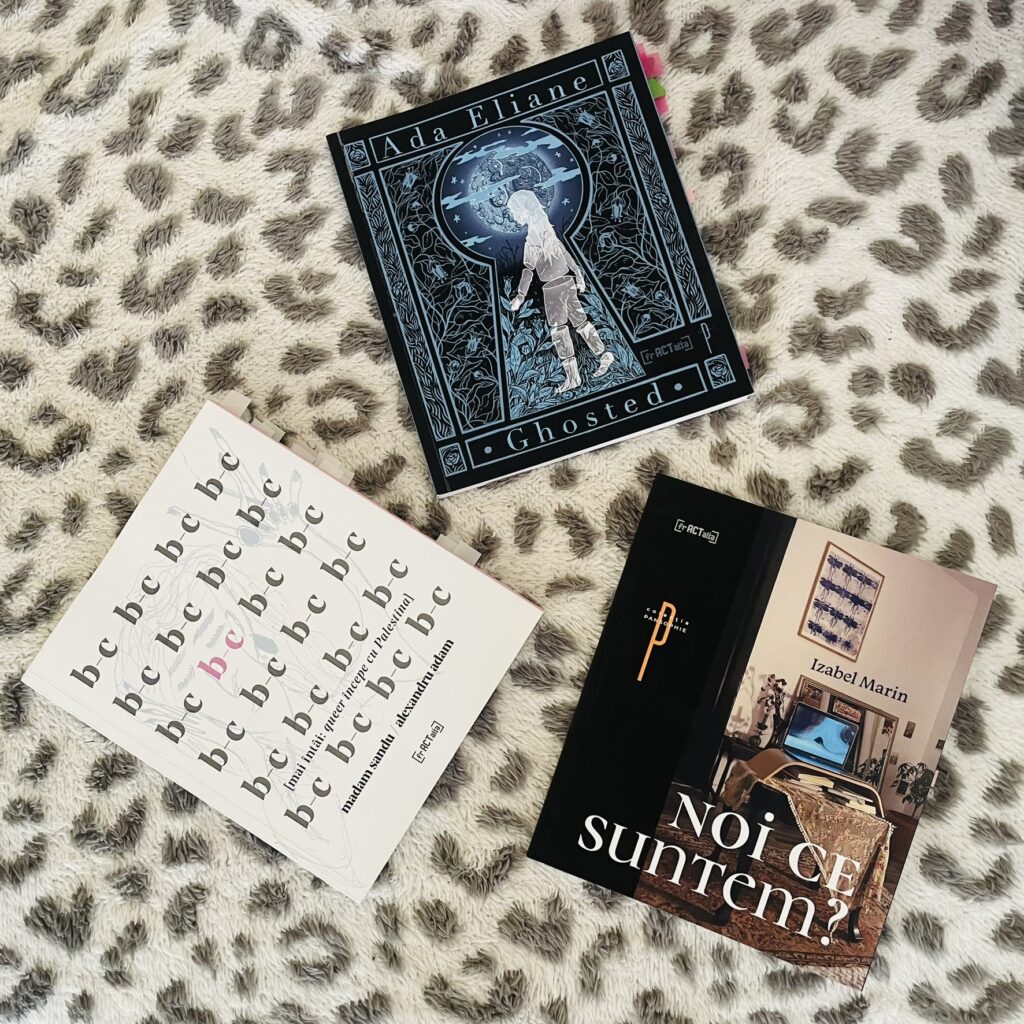
Întoarcerea – Gabriela Dumitriu. This, for me, is an iconic feminist, class-conscious, Eastern European read. It was like reading about our lives together, about our mothers and grandmothers, about their life trajectories – from village to city, from a socialist to a capitalist regime, about the frustrations and angers of fathers and uncles, about the small-town pride and small gossip. I found so many moments I recognized, expressions, emotions, family dynamics. In „The Return” by Gabriela Dumitiru we return to ourselves, to this Eastern European subject in the neoliberal capitalism of the present, as Aura, both as a child and as a woman, is crushed by intersecting gendered-class expectations.
Nu te găsesc pe nicăieri – Laura Ionescu. A memoir that extracts the essence of a mother-daughter relationship in Bucharest in the 1990s, „I Can’t Find You Anywhere” by Laura Ionescu is a gentle reliving of the past in order to be able to face life in its entirety. The author explores, in each chapter, facets and times in her relationship with her mother, pointing out moments of tenderness and learning, but also those full of tensions and misunderstandings.
Ghosted – Ada Eliane. Eliane returns to poetry with a gentle and brilliant voice, creating a mythology of the queer and trans self. The volume delves into some of the themes found in the first volume (the need for a safe space, the search for solace outside the homophobic and transphobic world, finding the stillness of the self in small activities) and touches on other themes as well, at times becoming darker and hard to carry (for example, moments of self-hatred or patriarchal violence), at other times playful and erotic. The volume is divided into ‘Stages’ of Becoming, makes space for both the past and the future, and contains poems in both Romanian and English.
Noi ce suntem? – izabel marin. In „What are we?” Izabel Marin writes in „simple” and powerful words about big themes such as anti-Roma racism, classism and precarity, adulthood (womanhood) at the intersection of these and most of all, the relationship with her Mother. In hybrid poems and essays, the author explores her relationship with her Mother, her Mother’s life (imagined or remembered), and later, the Mother’s very birth. Endless domestic labor, fear for her children because of racism, and lack of safety are recurring themes.
Spune-mi unde să apăs mai tare – Ramona Boldiszar. “Tell me where to push harder” is an intimate exploration, just as it promises, of the inner chambers and emotions of being a mother, a woman, a human person. The book is divided into three sections, the first dealing mainly with the experience of motherhood, the second with that of woman and daughter, and the third with the exploration of identity in relation to the (rural) environment. Alternating between Romanian and English, the poems propose a literary body linked by the juxtaposition of similar themes, but also by mood, a great mood alternating between „Today I am sad” and „I’m never wrong & I’m never right”.
Trofeu până ieri – Ágnes Kali. „Trophy Until Yesterday” opens up a poetic world of a daily life made up of moments in the kitchen of apartment blocks and small bars in youth. The volume tackles big and painful themes such as rape, death and abusive or at least toxic relationships, amid poems of love, loss and the search for self.
b.c. – madam sandu / alexandru adam. Cataloging queer life as lived and especially as unrealized, the volume „b.c.” by madam sandu / alexandru adam creates a work of resistance to any political & cisheteronotmative integration in the world. Divided into fragments of youth, middle and old age, drama and fragments of a novel, the book leaves no room for simple categorization, jumping from what we call poetry to essay to prose to something-else, back and forth, proving that neither its text nor its genre/gender can be categorized. The volume overflows with an uncanny eroticism, an ever-present corporeality, and a constant re-definition of queer urban, „balcony” life.
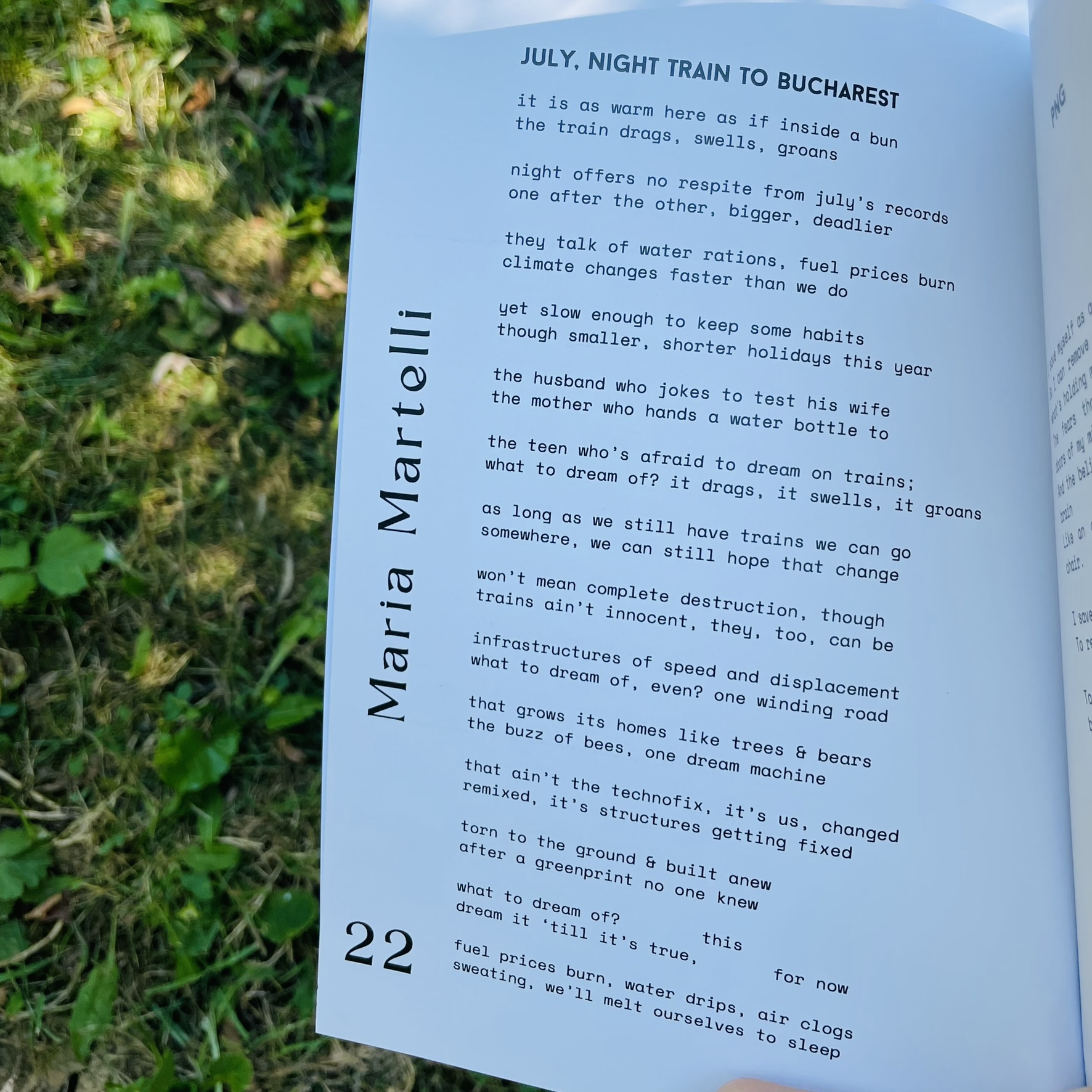
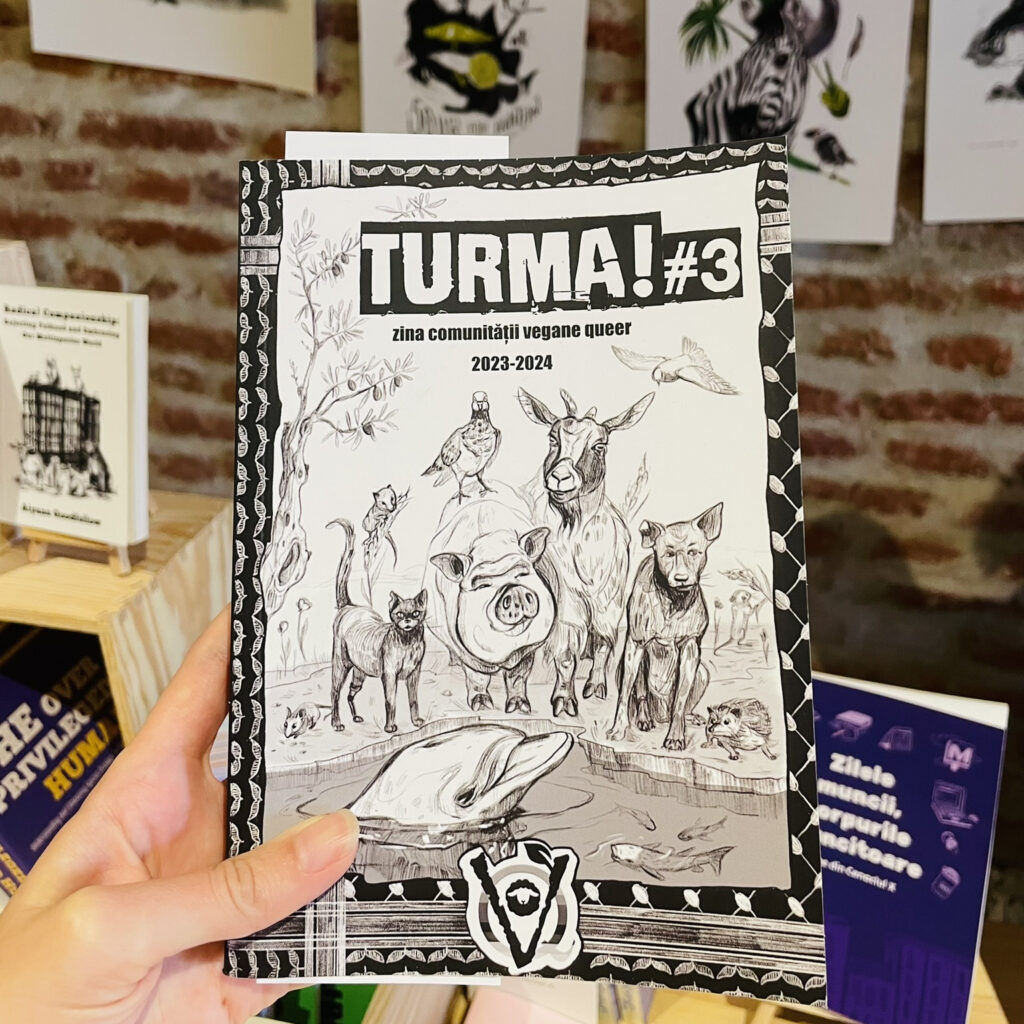
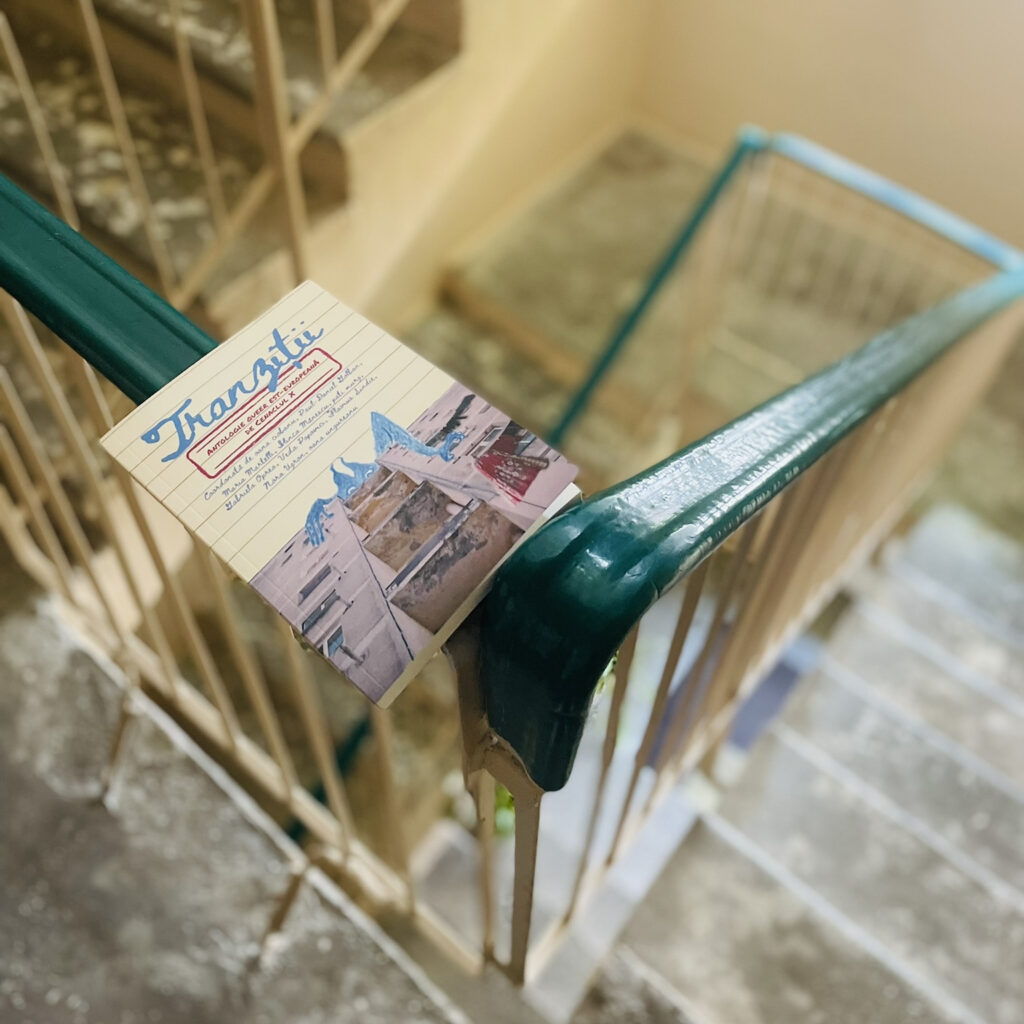
And I can’t not mention three new zines/anthologies in which there’s a bit of my writing, because obviously I did read and liked them. It’s the TURMA 3! Queer Vegan Community Zine, the “Tranziții. Antologie queer est-europeană de Cenaclul X” and specula anthology I.
At the end of this list it seems clear I am pretty bad at doing “tops” and, even as this list is impossibly long, I still would have liked to add a little something else – I’ll leave it for another time. When I read some of the titles I still remember when/where I read them, with whom, if anyone, how I felt then and how the days were passing, if I was sad, or hopeful, or sick, or angry. I’ve always felt held by stories, even when I was unconsciously reading stories that worked against me, riddled with sexism. Now, as reality becomes increasingly hard to handle, I find stories to hold it, to make sense of it, or to help me briefly escape, only to find the force to come back.